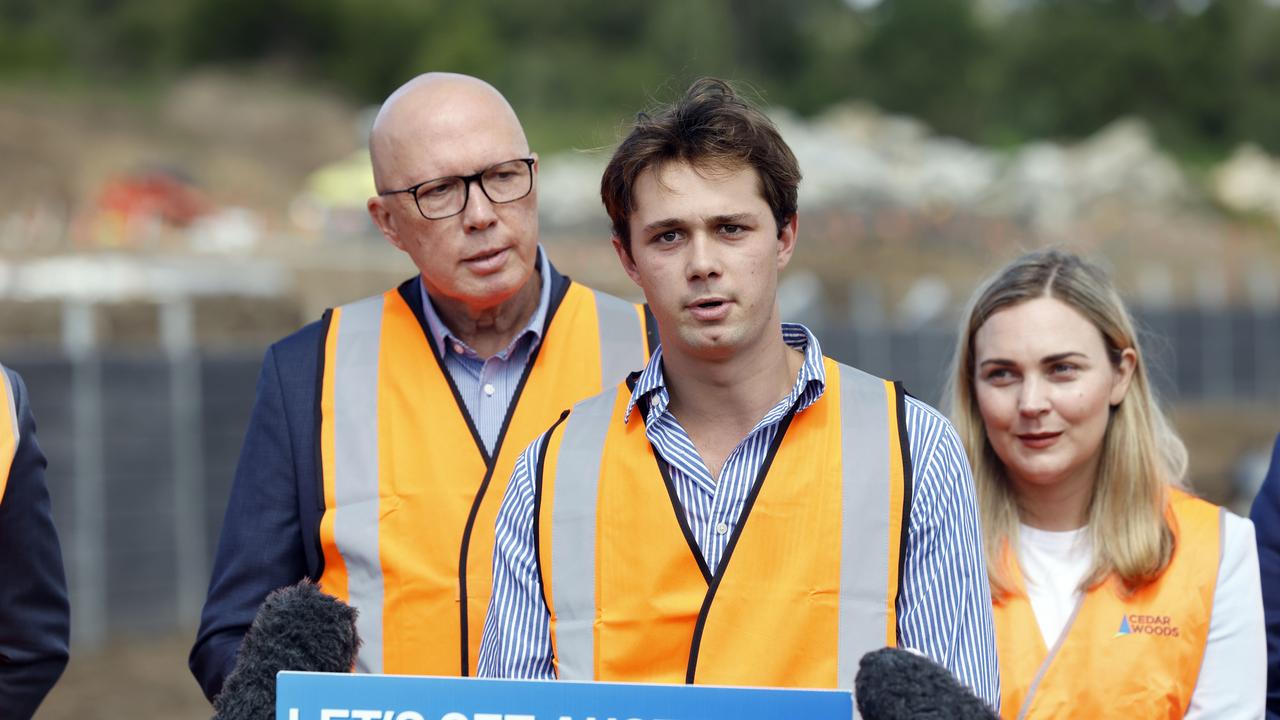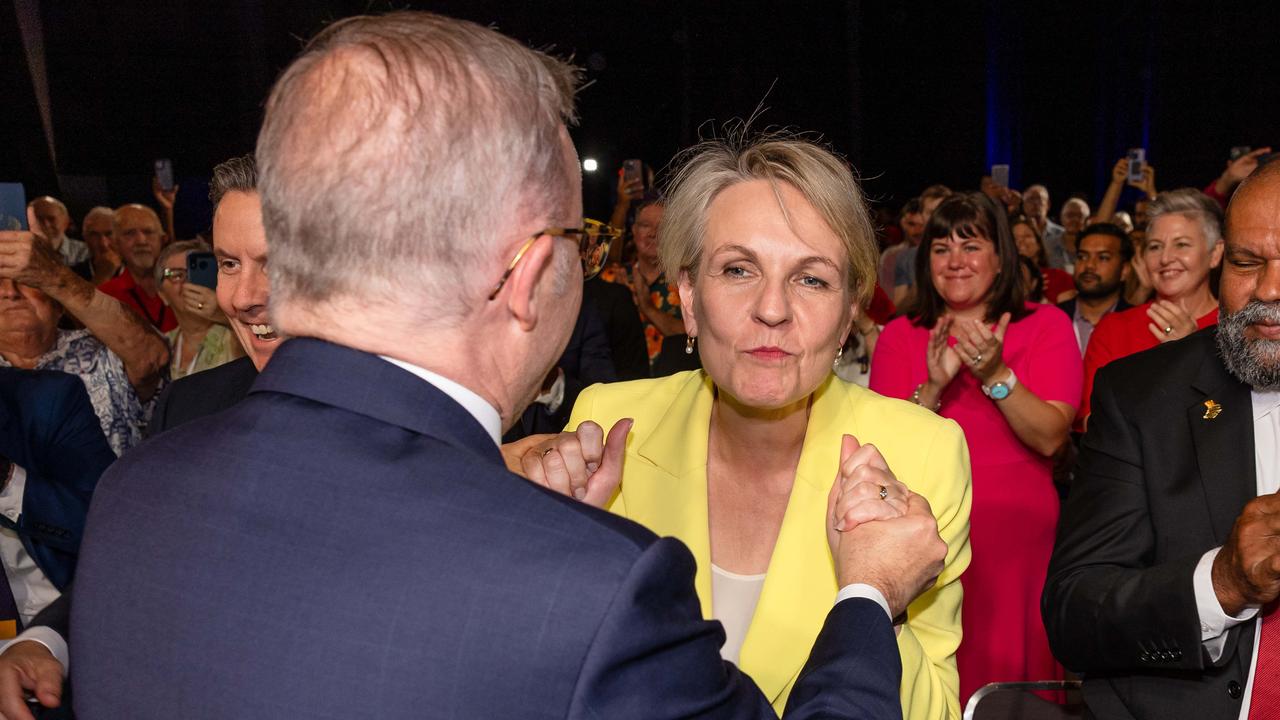What life in Australia will be like with Anthony Albanese as PM
Anthony Albanese will become the next Prime Minister. Here is what your life could look like under him.

Federal Election
Don't miss out on the headlines from Federal Election. Followed categories will be added to My News.
Anthony Albanese will become Australia’s next prime minister and says his vision for the country is a place where “no one is held back, and no one is left behind”.
The Labor leader has plans to accelerate action on climate change, to create a federal integrity commission, support higher wages, make childcare cheaper, and to manufacture more things in Australia.
Contrasting himself with outgoing Prime Minister Scott Morrison, who recently acknowledged he could be a “bulldozer” in how he handles issues, Mr Albanese said he was a “builder”.
“Whether it’s building roads or building relationships … building rail links or building connections … building a better future has always been my goal, and it’s what this campaign is all about,” he told Labor’s Brisbane campaign rally last Sunday.
This is what Australia will look like under Mr Albanese’s leadership.
There’ll be more EVs and hydrogen highways
Labor will make electric vehicles (EVs) cheaper and build a national EV charging network to make it easier for people to buy and use electric cars. They’ll also invest in hydrogen highways for heavy transport, equipped with hydrogen refilling stations to allow the use of hydrogen fuel cell vehicles.
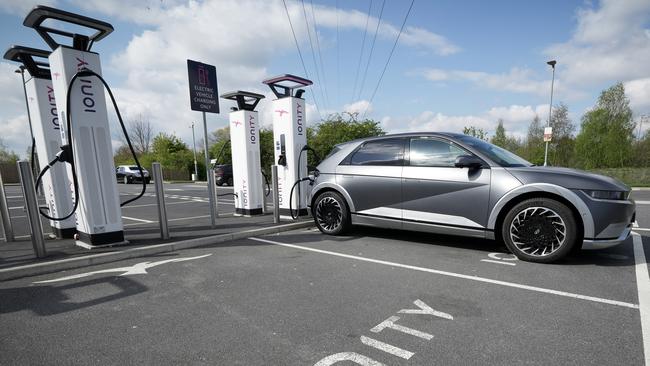
We’ll get new urgent care clinics
Labor will deliver 50 new Medicare Urgent Care Clinics next financial year to take pressure off emergency departments.
It will also establish a Strengthening Medicare Fund, putting in $250 million a year over four years, to deliver improved access to GPs (including after-hours), provide greater patient affordability, put less pressure on hospitals and offer better management of complex and chronic conditions.
Regional and outer metro communities will be able to recruit more doctors, access to bulk billed telehealth psychiatry consultations will be improved, and there’ll be extra melanoma nurses, and more Shepherd Centres to support children with hearing loss.
An extra 136 hospital beds will be provided at Adelaide’s Flinders Medical Centre as part of a $400m expansion. Funding will also be provided to end HIV transmission in Australia.
Medical treatments will be cheaper
The eligibility of the seniors health care card will be widened and prescriptions will be $12.50 cheaper. Labor will also cut the cost of glucose monitoring for diabetes patients and provide increased health screening for newborns.
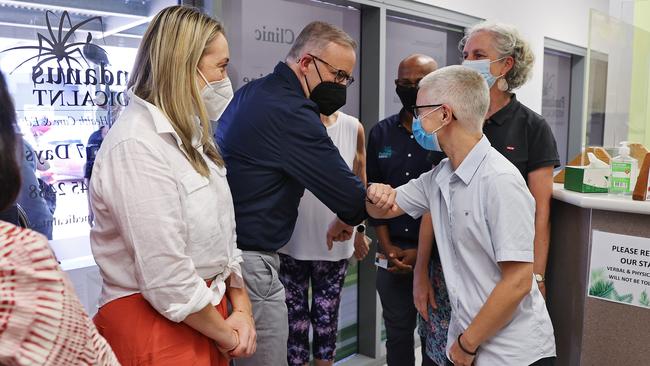
More people will get faster NBN
Another 1.5 million premises will get full-fibre NBN access, improving access to world-class gigabit internet speeds.
Labor says it will get 90 per cent of Australians on the fixed line footprint — making up more than 10 million premises — by 2025.
Multinationals will pay their fair share of tax
Multinationals will face a crackdown on loopholes allowing them to avoid paying tax, and
Labor says it supports the OECD plan for a global 15 per cent minimum tax on these companies but will consult with the industry, with changes to begin after 2023.
It says it is not planning any other tax changes and has ruled out introducing a carbon tax “ever” and is not planning to change the Petroleum Resource Rent Tax.
Wages will hopefully go up
Labor says it wants to see wages rise, and includes supporting an increase in the minimum wage by up to 5.1 per cent — to keep pace with inflation — if it is recommended by the Fair Work Commission. However, it hasn’t revealed the exact rate it would recommend.
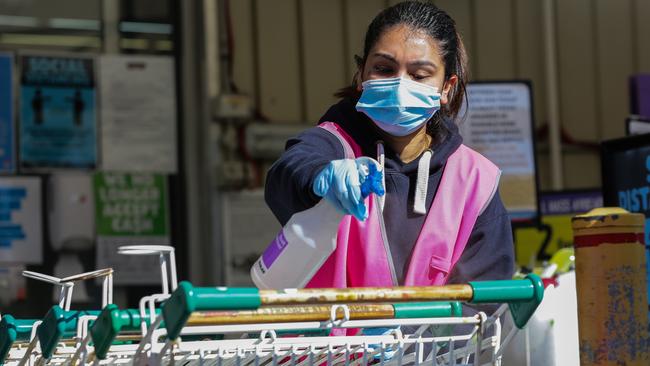
Funding for roads and other transport
Labor will help fund Victoria’s Suburban Rail Loop and has backed the $1.5 billion plan to build new port facilities in Darwin.
It will also put $250 million towards local road upgrades around Australia, and $587 million towards expanding the Bruce Highway in Queensland.
More investment in manufacturing projects
Labor will have a $15 billion National Reconstruction Fund, including $1 billion for investment in advanced manufacturing projects that innovate in transport, defence, resources, agricultural and food processing, medical science, renewables and low emission technologies manufacturing.
Another $1 billion will be earmarked for critical technologies such as quantum computing, artificial intelligence, robotics and software development.
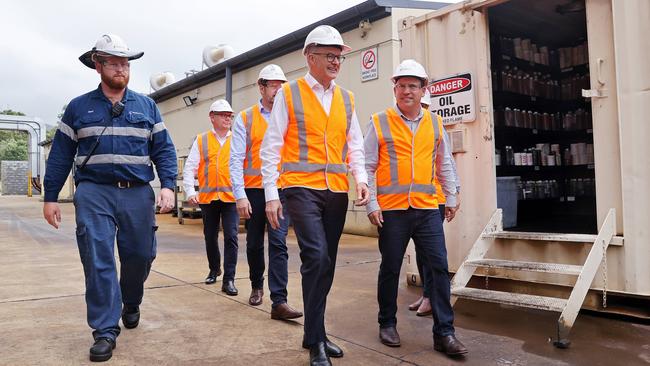
Closing the gender gap
The national gender pay gap is 13.8 per cent and Labor says it will lead a national push to increase women’s pay, especially in the caring industry.
It will strengthen the ability and capacity of the Fair Work Commission to order pay increases for workers in low paid, female dominated industries.
Labor will also introduce legislation so companies with more than 250 employees have to report their gender pay gap publicly, and give employees the right to disclose their pay if they want to.
It will take action to address the gender pay gap in the public service.
Domestic violence leave
While the Fair Work Commission has granted millions of Aussies access to 10 days paid domestic and family violence leave, Labor will introduce legislation in the next parliament to make 10 days paid domestic and family violence leave the law of the land.
Getting closer to Pacific
Labor says Scott Morrison “dropped the ball” on Australia’s foreign policy after the Solomon Islands signed a security pact with China.
It will provide more aid funding to the Pacific, expand the transmission of Australian radio content, establish a pacific defence school and boost support for aerial surveillance activities.
Labor says it will undertake a whole-of-government approach to re-engage with the Indo-Pacific, and there will be ministerial visits to Indonesia, India, Vietnam, Malaysia and Japan, and a Trade 2040 Taskforce.
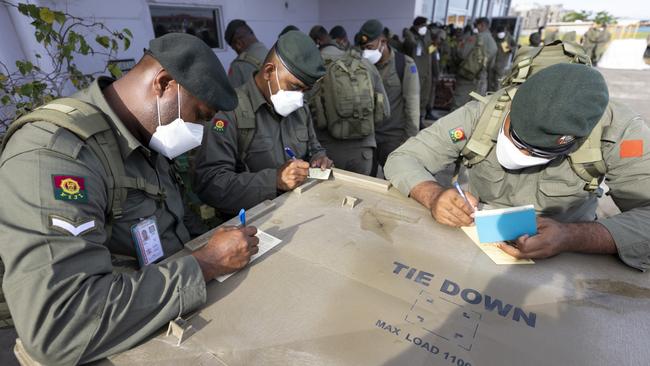
Accelerate climate change action
Labor plans to ramp up Australia’s response to climate change more quickly than the Coalition, promising to cut emissions by 43 per cent on 2005 levels by 2030, compared to the Coalition’s target of 26 to 28 per cent. Both parties say they will get to net zero by 2050.
Around $20 billion in low-cost financing will be provided for upgrades to Australia‘s transmission grid, and there’ll be changes to the safeguard mechanism to reduce the amount of greenhouse gases allowed to be emitted each year by certain companies.
More funding for Great Barrier Reef
Labor will put an extra $194.5 million into Great Barrier Reef protection programs and extend funding for the Reef 2050 Plan beyond mid-2023. There’ll also be more funding for restoring urban rivers and catchments, Indigenous rangers and for establishing a National Water Commission.
Save the koala
A $224.5 million Saving Native Species program will be established, and the government will work with states and territories on a national conservation strategy, as well as to expand koala hospitals and koala conservation programs. It will also fight yellow crazy ants in Cairns and Townsville.
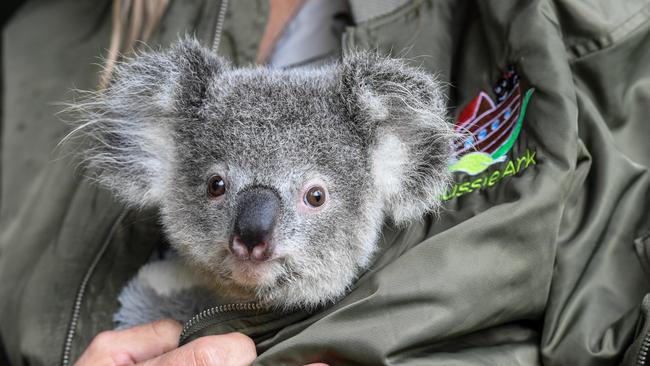
There’ll be incentives to become a teacher
Boosting teacher numbers and lifting standards will be part of a $146.5 million plan that will see 5000 students with high ATAR scores paid a bursary of up to $12,000 a year to study teaching. Labor will also try to lure professionals from other fields to retrain as teachers.
More TAFE and uni places
An extra 45,000 extra fee-free TAFE places and an extra 20,000 extra university places will be provided over 2022 and 2023, with a focus on areas of skills shortage.
Childcare will be cheaper
Labor will make childcare up to $1600 a year cheaper for families, and bring power bills down by an average of $275 a year by 2025 to help alleviate cost of living pressures.
It says changes will leave 96 per cent of families better off, with the average family saving $1600 a year. The plan will kick in next year, with Labor promising to include it in its first budget.
Playgroups will also get a boost with support for toy libraries, upgrades of facilities and for new playgroups in regional and remote areas.
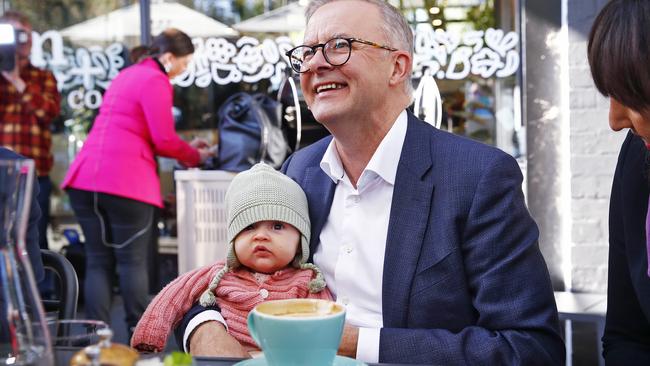
Help for people to buy homes
Aussies will be able to buy a home with a deposit of just 2 per cent as part of Labor’s equity scheme, which will cut the cost of buying a home by up to 40 per cent for 10,000 people a year.
Labor will also make properties cheaper by building social and affordable housing using a $10 billion fund to construct 30,000 homes for families doing it tough, as well as those fleeing domestic violence, and frontline workers like police, nurses and cleaners.
Gay and trans kids will be protected
Labor says it would consult widely about any changes to the religious discrimination act and vows to protect LGBTIQ+ school students after concerns were raised they could be expelled from faith-based schools.
It will amend the religious discrimination bill at the same time as the sex discrimination act.
We’ll get an integrity commission
Labor will legislate a national anti-corruption commission by the end of this year, saying it will be independent from government and not take directives from politicians about how it operates.
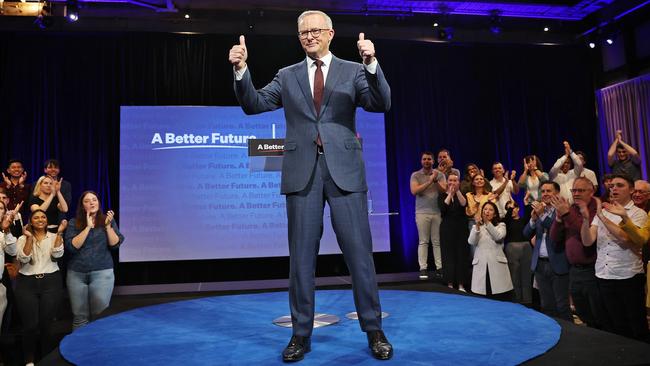
Aged care will be reformed
Labor has promised to crackdown on dodgy residential aged care providers, by implementing tough penalties for systematic abuse and neglect.
Its $2.5 billion overhaul of the sector includes requiring a registered nurse to be on site 24 hours a day, and mandating that every Australian living in aged care receives a minimum of 215 minutes of care per day, as recommended by the royal commission into the sector.
It has also vowed to put a cap on home care administration and management fees, as well as requiring monthly reports to users in a bid to stop rorting of the system.
Mr Albanese says Labor will support aged care workers arguing for a pay rise in the Fair Work Commission.
Review of NDIS
Mr Albanese may not have been able to remember the six points of Labor’s NDIS plan but as he said it “puts people with disability at the centre of the scheme”.
An expert review will ensure plans are not being unfairly cut, and the NDIS’s design will be also be reviewed. Around $15 million will be put towards building evidence for a research partnership and to consider continued support for data programs.
The implementation of the strategy will be measured to make sure progress is being made on outcomes like employment and education, and Labor also want to improve employment outcomes through a centre for excellence for ideas and to increase capacity of employment services.
Labor will also develop a national autism strategy.
Recognition of First Nations people
Mr Albanese says he would like to hold a referendum on constitutional recognition of First Nations people, with a Voice to Parliament, in his first term of government.
Australia will get a disease control centre
An Australian version of the United States’ Centers for Disease Control and Prevention (CDC) will be established to lead the federal response to future disease outbreaks and work to prevent chronic as well as infectious diseases.
Biloela family will be allowed to stay
Mr Albanese says Labor will allow the Biloela family to stay in Australia.
However, it will continue boat turnbacks and offshore processing for asylum seekers.
It does not support temporary protection visas that leave refugees in limbo but says the visas are no longer used anyway, as anyone who arrives by boat is either sent to Nauru or turned back.
Refugees who were previously on temporary visas will be provided permanent protection visas instead, but “anyone who has attempted to come to Australia by boat will not settle here” and there will instead be third country resettlement, including to New Zealand.
Originally published as What life in Australia will be like with Anthony Albanese as PM




